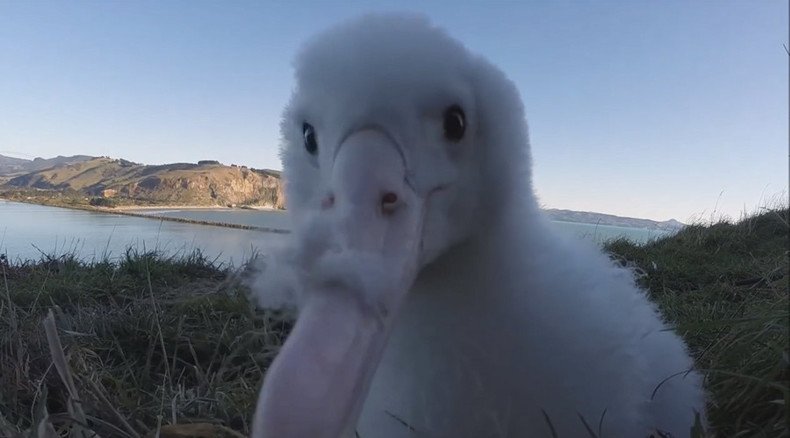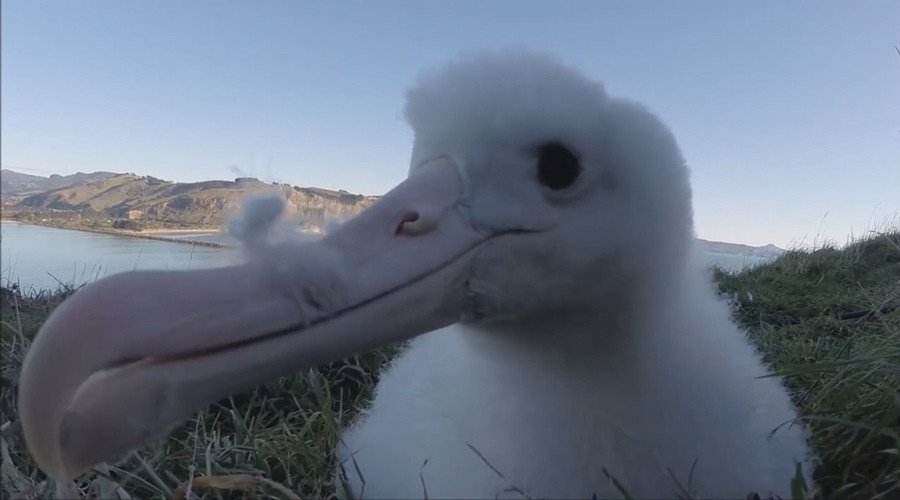Cute albatross chick gets close and personal with GoPro (VIDEO)

A curious albatross chick discovered and examined a GoPro camera secreted in nearby grass, footage released on Tuesday shows. Touching the device with its beak, the baby bird might have just wanted to taste it, waiting for a parent to return with food.
Nothing to see here guys - just a cute curious chick Albatross on the Otago Peninsula in the south of New Zealand looking to 'play' with a Go-Pro.
Posted by RT Play on Wednesday, July 22, 2015
The fluffy royal albatross chick contributed to an amazing collection of GoPro videos, many of which have seen curious birds taking selfies with the human gadget.
READ MORE: Birds vs GoPro: What happens when nature meets technology (VIDEOS)
The footage released by the Royal Albatross Center, shows the five-month old chick approaching the camera and exploring it with its beak.
The camera filmed the bird by its nest at the Royal Albatross Center on the Otago Peninsula in the south of New Zealand. Its parents were apparently away hunting for seafood. According to Wikipedia, these large seabirds' foraging activities can take place up to a thousand kilometers (620 miles) from their breeding site.
READ MORE: Seagull steals GoPro camera, takes cool selfie (VIDEO)

The chick is one of 26 currently living at Taiaroa Head, which is the only mainland royal albatross breeding colony in the world, Ruptly reported. Due to a loss of habitat and growing commercial fishing, the species is considered vulnerable by the International Union for Conservation of Nature (IUCN).












